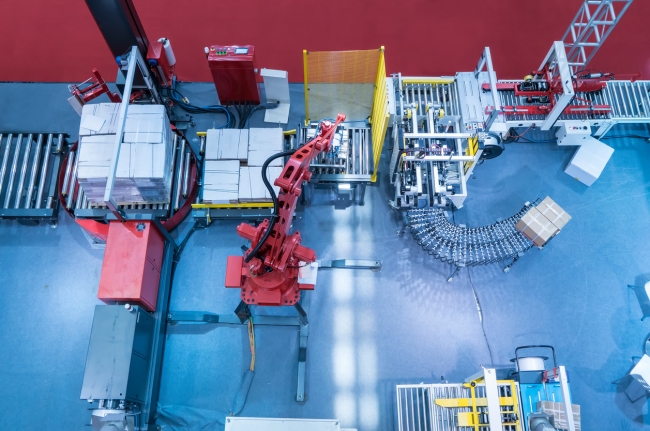2 minute read • published in partnership with BDO
Opinion: AI in manufacturing – change brings opportunity
The UK has a bold and successful manufacturing history, stemming from the birth of the first industrial revolution in Britain. Today we are in the early stages of the fourth industrial revolution (4IR). Tom Lawton from BDO looks at how manufacturers have a unique opportunity to utilise new technologies and ideas to add real value to their businesses, their customers and their supply chain.
As well as driving productivity and improving quality control, 4IR will also enable the automation of connections to the supply chain and customers. Over time artificial intelligence (AI) built into automation will start to control and drive all aspects of the manufacturing process – with less human intervention.
AI will become increasingly important as the Internet of Things further develops. AI algorithms will have the ability to gather and analyse an immense amount of data (Big Data) and present solutions to users. AI and Big Data are in their infancies at the moment but many companies are starting to use these tools to gain competitive advantage – think Facebook and Google who are busy collecting a massive amount of data about us, and for free.

Manufacturers have a unique opportunity to utilise new technologies and ideas to add real value to their businesses, their customers and their supply chain / Picture: Getty/iStock
AI will form an increasing part of manufacturing in the years ahead. The long-term value lies in a business being able to operate constantly with maximum accuracy, ensuring minimum waste of effort, time and resources – driving overall productivity growth. And as computing power continues to grow, 4IR and AI is within the reach of more manufacturers
A key concern for many is whether 4IR and AI is a threat to jobs. Unfortunately, we think that the answer might well be yes – particularly for workers that perform repetitive tasks that machines can do for longer and with more reliability. There might be a growing need for people that develop and programme the AI and the machine environment – but these will be differently skilled people. This is why a sustainable industrial strategy is so important.
The announcement in February of a new joint government-industry package to improve skills in the AI sector to boost productivity and create high-skilled jobs as part of the modern Industrial Strategy was positive news. Supported by industry funding and up to £110m Government investment, it will help deliver the next generation of artificial intelligence talent trained in UK universities. However, this level of spending is simply not sufficient to support the training needs for the future and there needs to be a joined up policy for education, skills training and also retraining.
If properly supported, Britain’s historic strengths in innovation, design and service provide the right foundations for successful development of 4IR and AI. My concern is that the sector is not being properly supported during what is a potentially pivotal time for UK manufacturing within a very competitive global market.

BDO Head of Manufacturing, Tom Lawton / Picture: BDO
